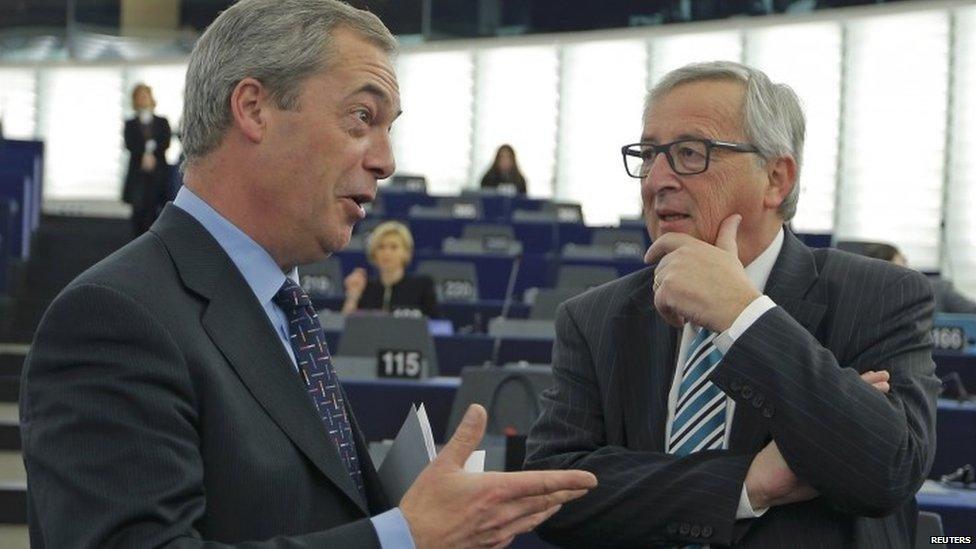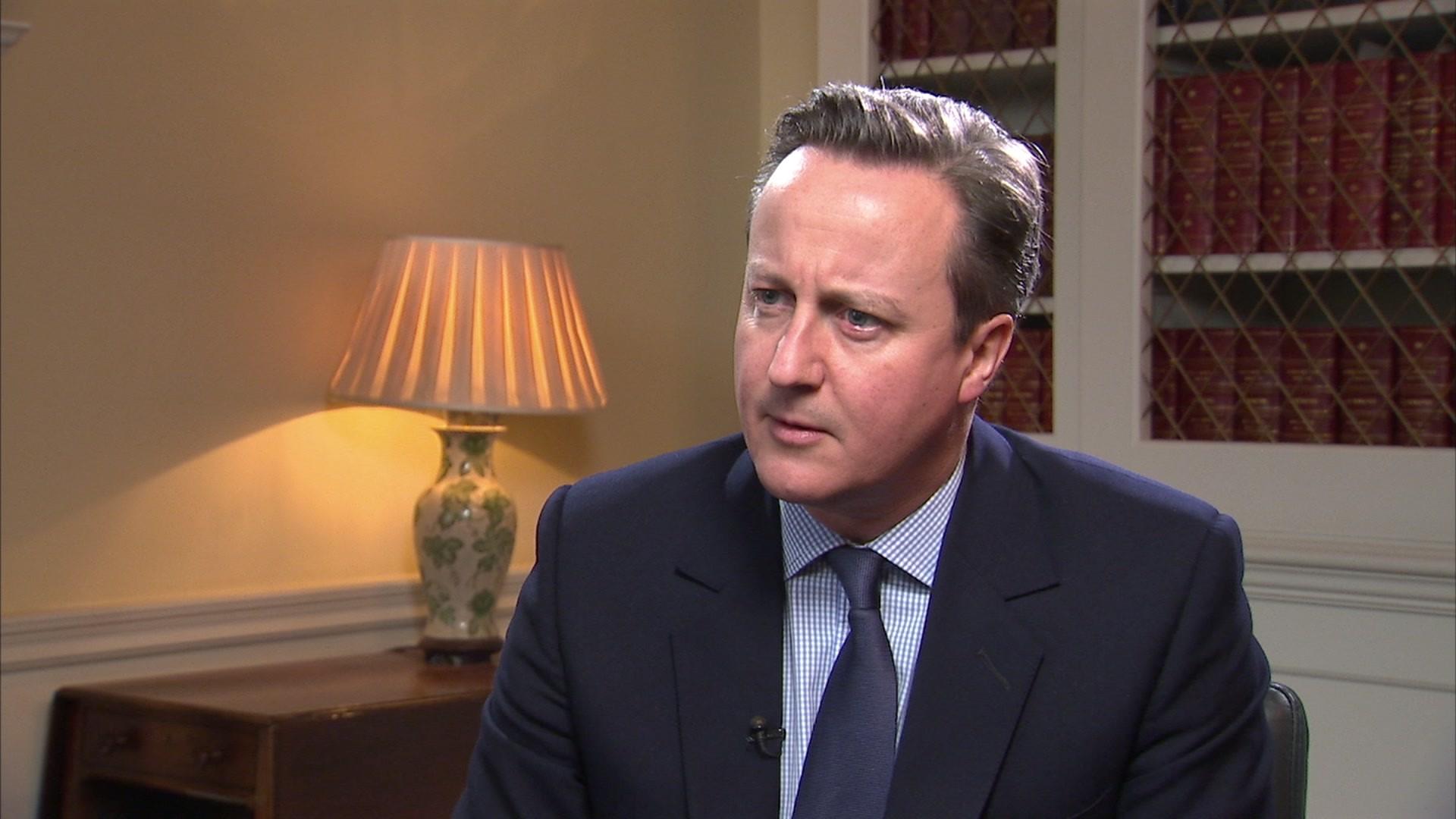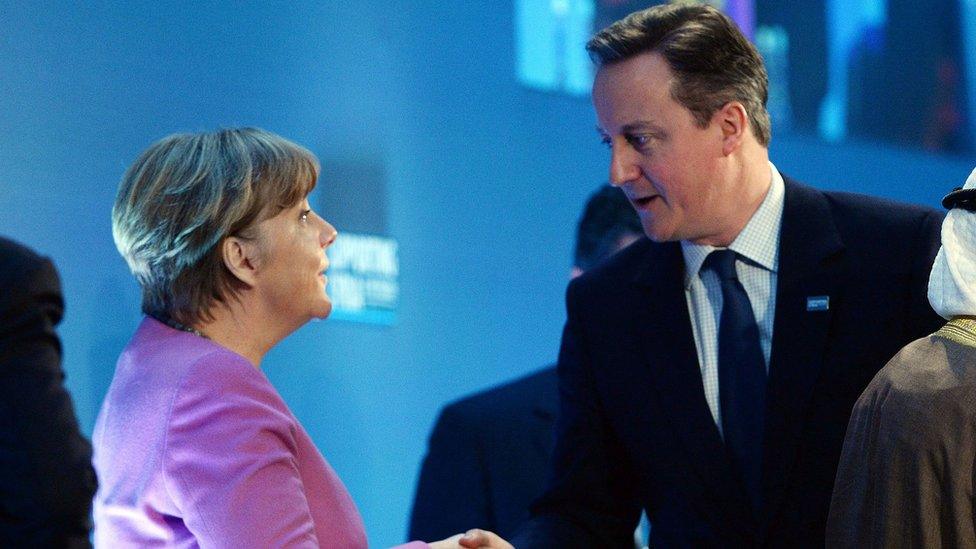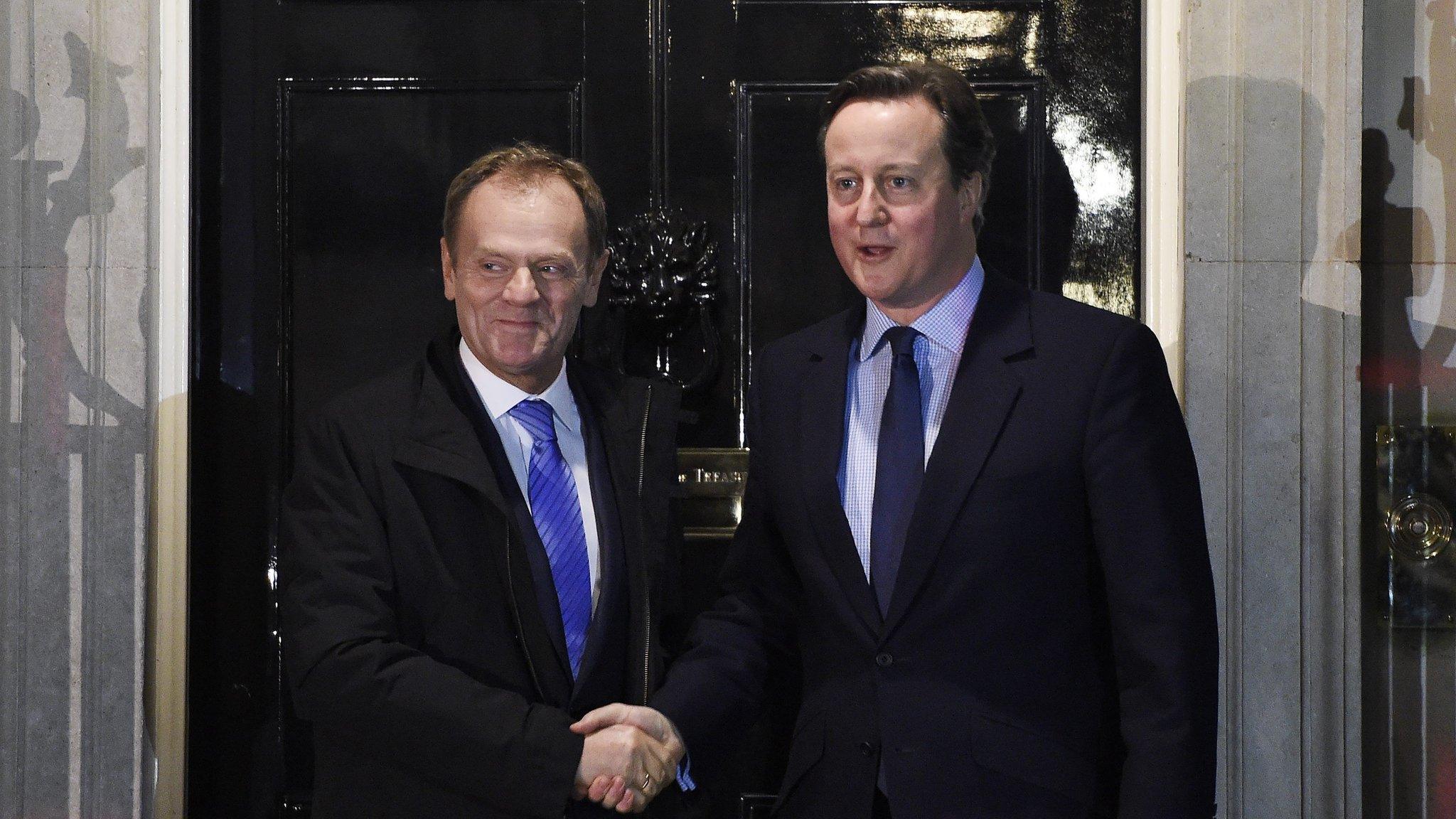EU referendum: Benefit brake 'to address UK concerns'
- Published
Draft EU deal 'is fair to all' says Jean-Claude Juncker
Limiting in-work benefits to new EU arrivals will help tackle the effects of record migration to the UK since 2004, the EC's president has said.
Jean-Claude Juncker said the UK imposed no migration controls on eight central European and Baltic nations joining the EU in 2004 and the new proposals would "address the consequences" of that.
But he said the emergency brake would only apply in "exceptional cases".
Eurosceptics say it is ineffectual and could make the situation worse.
Speaking in the European Parliament, UKIP leader Nigel Farage said the plan was a "handbrake turn" by David Cameron.
The prime minister has hailed a plan to allow the UK to limit the amount of tax credits paid to new EU migrants for up to four years as one of the key elements of a draft package of reforms to the UK's membership of the EU - the details of which he will set out to the UK Parliament later.
He has said the emergency brake, which would take effect if it could be proven that high levels of migration were putting an extreme strain on the UK's benefits system, could be triggered almost immediately.
But many Tory MPs have criticised the plan, saying it is a watered-down version of the total four-year ban the PM was hoping for and that new migrants would still receive "graduated" rates of in-work benefits over the four year period and the full amount after that.
In full: Nigel Farage speech to European Parliament
They are also unhappy that the brake would have to be approved by other EU nations and the UK could not apply it unilaterally.
Defending the proposals and the rest of the draft deal in the European Parliament, European Commission President Jean-Claude Juncker said that the entire package - which must be approved by the EU as a whole, was "fair to the UK and fair to the other 27 EU states".
On welfare, he said: "We propose to create a safeguard mechanism tailor-made to the concerns of the UK, that would allow it to restrict the excess of EU workers newly entering its Labour market to in-work benefits in a graduated manner for a period of up to four years.
"The duration of the mechanism will be limited in time - that is a crucial characteristic of a safeguard mechanism, necessary to make it compatible with the (EU) treaties. It will apply in exceptional cases as all derogrations from the freedoms (of movement rules) should."
Mr Juncker pointed out that the then Labour government had had the option to introduce transitional controls on migration when countries such as Poland and Hungary entered the EU in 2004 but, unlike Germany, decided against doing so.
One of the most controversial decisions of Tony Blair's time in office, several former Labour ministers have since said it was a mistake and acknowledged the government hugely underestimated the number of people who would come to the UK.
'Dwarf outside EU'
Mr Juncker said "as a result" of that decision "over the past decade, the UK attracted a record number of mobile EU citizens". He added. "In effect, we will enable the UK to use the safeguards mechanism to address the consequences of that decision."
But UKIP leader Nigel Farage, also speaking in the European Parliament, said the safeguards were totally insubstantial and would not allow the UK to reduce levels of annual net migration, which rose to 336,000 in the year to June 2015.
"We have an emergency brake on migrants benefits. Wow. It was supposed to be a total ban on migrants benefits for four years. So it is hardly an emergency brake, it is more of a handbrake turn."

Nigel Farage has described the package endorsed by the European Commission as pathetic
Mr Farage said Mr Cameron would not be able to get any further concessions out of the EU and the forthcoming referendum on the UK's future in the EU would be a battle between "vested self-interests and people power".
Former Belgian prime minister Guy Verhofstadt, who is now a leading MEP, suggested that if the UK voted to leave the EU, it would be a boost for Russia and China.
"I think Britain without Europe - ok it's a dwarf, let's be honest," he claimed.
"We Belgians, we know that we are dwarfs but maybe they're going to know it also. And at the other hand Europe without Great Britain, yes, doesn't count, is not a counterweight against China, against Russia, against the United States.
"It is Vladimir Putin, in fact, who wins in this game in the end because Putin likes a divided Europe."
- Published3 February 2016

- Published1 February 2016

- Published2 February 2016
